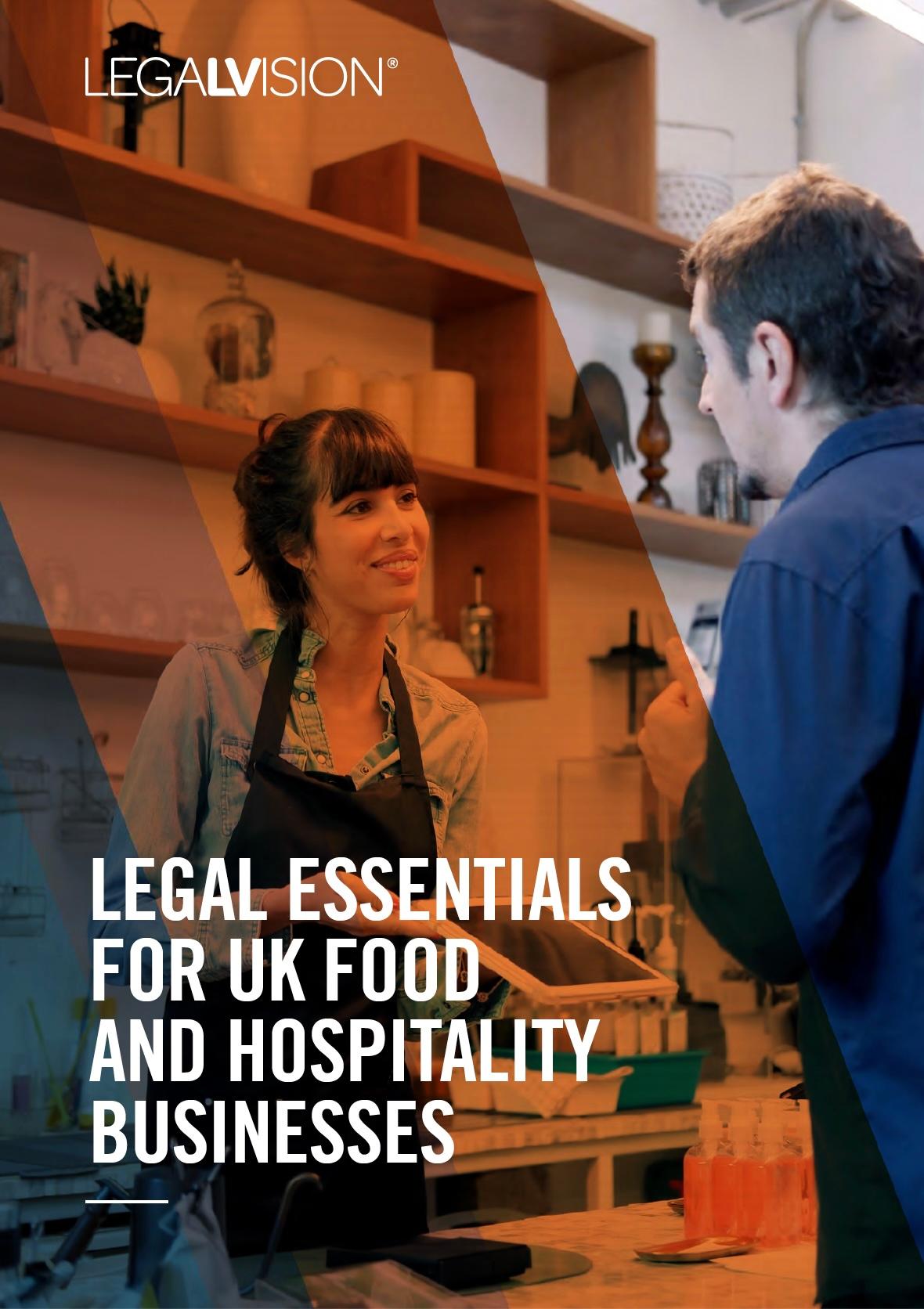In Short
- Setting up a café in the UK involves legal duties across registration, licensing, health and safety, employment, data protection and accessibility.
- You must comply with food safety laws, local authority requirements, and employment and consumer regulations from day one.
- Failing to meet these obligations can lead to fines, enforcement action or closure.
Tips for Businesses
Choose your business structure carefully and register with the correct authorities before trading. Start licensing applications early, register as a food business, and put health and safety systems in place from day one. Use written employment contracts, protect your brand with trade marks, and ensure GDPR and accessibility requirements are built into your operations.
Summary
This article guides UK business owners through the legal requirements for setting up and running a café in the United Kingdom. It explains key compliance areas, including licensing, health and safety, employment law, data protection and intellectual property, prepared by LegalVision’s business lawyers, who specialise in advising clients on regulatory and commercial compliance.
On this page
- 1. Business Structure and Registration
- 2. Licencing and Permits
- 3. Health and Safety Regulations
- 4. Food Standards
- 5. Employment Laws and Regulations
- 6. Intellectual Property (IP) Protection
- 7. Data Protection and Privacy
- 8. Accessibility and Disability Discrimination
- Key Takeaways
- Frequently Asked Questions
Setting up a cafe in the UK can be an exciting and rewarding venture. However, beneath the appeal of creating a unique hospitality space lies a complex web of legal requirements that must be navigated carefully. Understanding and complying with the applicable legal framework is not just advisable. It is essential for ensuring your cafe operates legally and successfully. This article will explore the key legal considerations aspiring cafe owners should consider when setting up their establishments in the UK.
1. Business Structure and Registration
The foundation of any successful cafe begins with selecting the appropriate business structure. This decision will have far-reaching implications for your liability, tax obligations, and operational requirements.
Business Structure Options
The first step in establishing a cafe is to decide on the most suitable business structure. Common options include:
- Sole Proprietorship (Sole Trader): The simplest structure where you operate as an individual. While easy to establish, you will have unlimited personal liability for business debts.
- Partnership: Suitable when two or more people wish to run the cafe together. You should consider a formal partnership agreement to define roles, profit-sharing, and exit strategies, and you may also wish to consider incorporating as a limited liability partnership.
- Limited Company: Offers limited liability protection and potential tax advantages but involves more complex reporting requirements and corporate governance obligations.
Registration Requirements
Once you have chosen your structure, registration with the appropriate authorities is mandatory, such as:
- Companies House (for limited companies or limited liability partnerships);
- HM Revenue & Customs (HMRC) for tax purposes; and
- notification to your local council when you occupy business premises (for business rates assessment by the Valuation Office Agency).
2. Licencing and Permits
Food Business Registration
You must register as a food business with your local authority at least 28 days before opening. This registration is free of charge and covers the preparation and sale of food and non-alcoholic beverages.
Premises License
Premises licenses are mainly required only if you plan to:
- sell alcohol;
- provide regulated entertainment (live music, dancing); and
- serve hot food or drinks between 11 PM and 5 AM (late-night refreshment).
Additional licenses may include:
- Music License: For playing recorded music (PRS for Music and PPL licenses);
- Pavement License: For outdoor seating on public highways; and
- Street Trading License: If operating from a mobile unit or market stall.
Call 0808 196 8584 for urgent assistance.
Otherwise, complete this form, and we will contact you within one business day.
3. Health and Safety Regulations
The food service industry is heavily regulated, and cafes must maintain rigorous health and safety standards to protect both customers and employees.
Requirements can be broken down into two categories:
- Food Safety Management: Implement a Hazard Analysis and Critical Control Points (HACCP) system to identify and control food safety risks.
- Hygiene Standards: Maintain impeccable cleanliness standards, including:
- regular deep cleaning schedules;
- proper food storage at correct temperatures; and
- cross-contamination prevention measures.
Staff Hygiene Protocols
You should maintain all equipment, especially espresso machines and grinders, and train your staff in their safe operation. Since commercial coffee equipment runs at high temperatures and pressures, you follow clear safety procedures at all times.
Moreover, you must install proper fire detection systems and fire extinguishers, and keep all escape routes clearly marked and unobstructed.
4. Food Standards
Compliance with Food Standards Agency (FSA) requirements is non-negotiable and directly impacts your ability to operate legally. You should register with your local authority and undergo regular inspections. A poor rating can significantly impact customer confidence and business viability.
Furthermore, food businesses need to tell customers if any of the food they provide contains any of the listed allergens as an ingredient. There are 14 allergens that are required to be declared as allergens by food law. In addition, prepacked food must have an ingredients list present on the packaging. Allergens present in the product must be emphasised each time they appear in the ingredients list.
Regarding temperature, you should maintain cold food below 8°C, with proper monitoring and recording systems.
5. Employment Laws and Regulations
Hiring and managing employees in a cafe requires complying with various employment laws and regulations. This includes:
- ensuring fair employment contracts;
- adhering to minimum wage requirements;
- providing a safe and inclusive working environment; and
- understanding the rules governing working hours, breaks, and holiday entitlements.
6. Intellectual Property (IP) Protection
Protecting your cafe’s Intellectual Property (IP) is crucial to safeguarding your brand and reputation. Consider registering trademarks for the:
- cafe’s name;
- cafe’s logo; and
- any unique branding elements.
This will help prevent others from using similar marks that could confuse customers. It is also essential to respect the IP rights of others and avoid infringing on existing trademarks, copyrights, or patents.
7. Data Protection and Privacy
Data protection and privacy considerations come into play with the increasing use of technology in cafes, such as online ordering systems and customer databases.
Cafe owners must comply with the General Data Protection Regulation (GDPR) and ensure that personal data collected from customers is stored securely and used only for its intended purpose. Implementing appropriate data protection policies and obtaining customer consent for data processing is essential to avoid legal repercussions.
8. Accessibility and Disability Discrimination
Cafes should strive to provide equal access and services to individuals with disabilities. Under the Equality Act 2010, cafe owners must make reasonable adjustments to ensure their premises are accessible to everyone. This may include installing ramps, accessible toilets, and providing alternative menu formats.

Starting or managing a food or hospitality business? Download this free guide to understand key legal essentials, including licensing, staffing and compliance.
Key Takeaways
When setting up a cafe in the UK, entrepreneurs must navigate a complex legal landscape to ensure compliance with various regulations. These legal considerations relate to the following:
- health and safety;
- IP rights;
- business registration;
- employment law;
- data protection; and
- licencing.
By understanding and addressing these legal obligations, UK cafe owners can establish a strong foundation for their business, fostering growth and ensuring long-term success in the competitive cafe industry in the UK.
However, there is also a business side to setting up a cafe in the UK, which includes preparing a business plan and focusing on attracting a large customer base through advertising and social media. There is often a high degree of local competition for new cafe owners, so it is a good idea to figure out the best way to target customers before launching your new business.
LegalVision provides ongoing legal support for cafes through our fixed-fee legal membership. Our experienced lawyers help businesses in the food and hospitality industry manage contracts, employment law, disputes, intellectual property and more, with unlimited access to specialist lawyers for a fixed monthly fee. To learn more about LegalVision’s legal membership, call 0808 196 8584 or visit our membership page.
Frequently Asked Questions
One of the main expenses involved with a new coffee shop is the purchase of suitable coffee machines, as most customers expect speciality coffee drinks rather than instant blends.
Naturally, if your coffee shop prepares any food on site, it should have designed food preparation areas and comply with the food hygiene standards set by the Food Standards Agency (FSA).
We appreciate your feedback – your submission has been successfully received.












